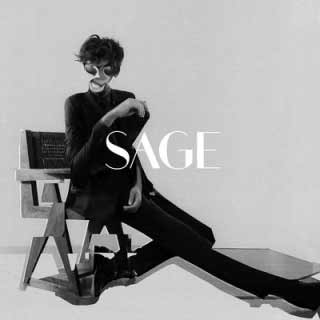On Label Gum’s page for Sage, Ambroise Willaume says “I like to go for the things I haven’t yet mastered.” It’s a very precise statement, because his self-titled debut sounds exactly like an experimental pop record that’s still trying to figure itself out.
As Willaume laces his voice, often in falsetto, over the tracks, it’s hard not be reminded of all sorts of British Baroque pop from eras gone by (like the adventurous Beatles songs, The Flamingos, Elliot Smith, or even Radiohead), but it’s clearly something Sage is interested in taking in his own direction. The tracks here aren’t predictable pop music made for the masses; they are made by somebody interested in “going for things he hasn’t yet mastered.”
The record is devoid of anthemic radio-friendly singles, but it has a consistent air of familiarity, almost as if you’ve heard it before, but you don’t know where. Part of it is because of Sage’s amalgamation of influences, for sure, but I wonder if it’s also a result of his sincerity. His earnest (but somewhat vague) lyrics, peppering emotion on every track, makes his music feel universal.
Sage also feels like a continuation of the sort of music that Willaume would have continued to make with Revolver: baroque pop influenced by chamber music in France. And it captures an undefinable quality, perhaps because of its French background, that sounds like magic on tape. There’s an air of lightness to the record.
On Eyes Closed, as Willaume approaches Radiohead territory, and his voice sprawls out over the track covered in reverb, it feels like he’s discovering something unearthly buried in the echoes. And when the album closes it out with the final notes of that track, it’s an honest surprise because it doesn’t overstay its welcome.
On his first record as Sage, Willaume is doing two things: he’s wearing his influences on his sleeve, and he’s refusing to write two songs that sound the same. In a lot of ways, it’s unfortunate that his music is destined to avoid the radio, because he has a winning formula on his hands. His tasteful mishmash of styles, combined with his French chamber music influences, makes Sage feel like a unique and earnest pop record completely devoid of label compromise. Sage offers a refreshing take on pop music with his debut, and it’s hard not to recommend it.
